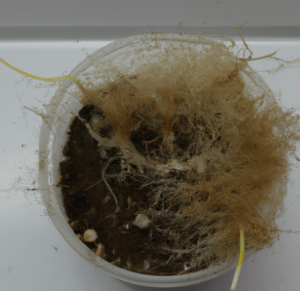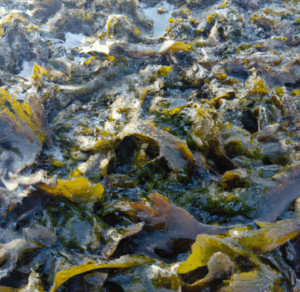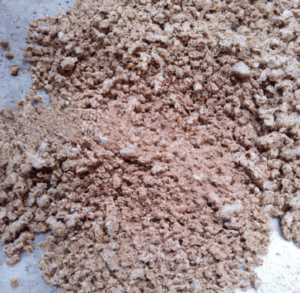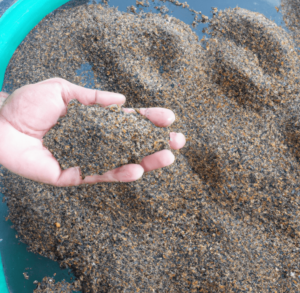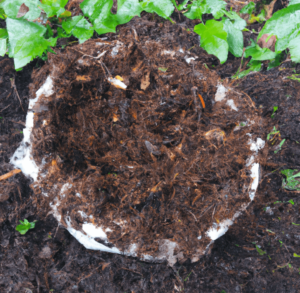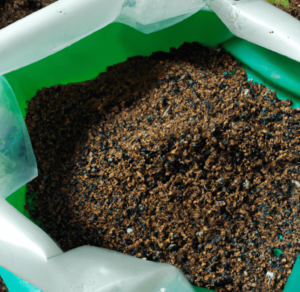Worm castings sometimes referred to as vermicompost, is a nutrient-rich compost made by earthworms that has many advantages over synthetic fertilizers. It can be used as a top dressing for lawns, a fertilizer for vegetable gardens, fruit trees, and ornamental plants, or it can be mixed with potting soil for indoor plants. This natural fertilizer is a black, odorless, crumbly powder that resembles coffee grounds. Vermicompost enhances soil structure, encourages strong root development, boosts soil fertility, and aids in moisture retention, minimizing the need for frequent irrigation. In addition, employing vermicompost lessens the adverse effects on the environment, making it a more sustainable and eco-friendly alternative to chemical fertilizers. We all know that the role of fertilizers in gardening‘s important so, here are all of the benefits of using vermicompost as a fertilizer!
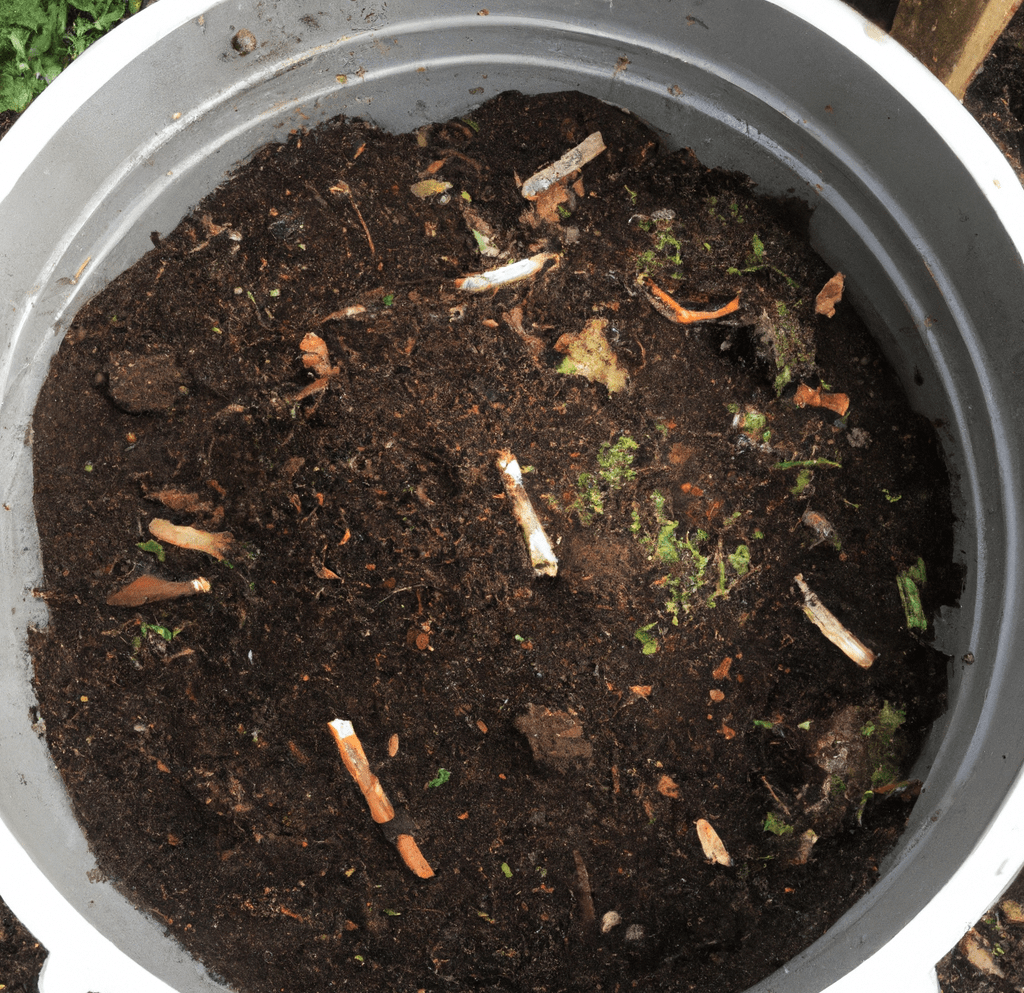
Nutritional Benefits of Vermicompost as a Fertilizer
In gardening, the benefits of using vermicompost as a fertilizer for nutrition include:
- Vermicompost is a rich source of micronutrients like calcium, magnesium, and iron as well as a well-balanced combination of macronutrients like nitrogen, phosphorus, and potassium. These nutrients support healthy growth and development in plants since they are delivered gradually and are easily accessible to them.
- Vermicompost is a superior soil amendment for a variety of crops since it also enhances soil structure, water retention, and nutrient absorption. Additionally, it contains advantageous microbes and enzymes that aid in preventing soil-borne illnesses and pests.
- Vermicompost is a sustainable and environmentally friendly alternative to chemical fertilizers that uses less synthetic inputs and lessens environmental damage. Vermicompost can help farmers and gardeners increase the fertility and productivity of their soil and encourage the development of stronger, more nutrient-dense plants.
High Levels of Macronutrients (Nitrogen, Phosphorus, and Potassium)
The fact that vermicompost has high concentrations of macronutrients like nitrogen, phosphorus, and potassium, which are necessary for plant growth and development, is one of the fertilizer’s most important advantages. The benefits of using vermicompost as a fertilizer include that it gives the plants these macronutrients in a balanced and easily accessible form, unlike artificial fertilizers, which might have large levels of macronutrients but in an unbalanced form.
Vermicomposting converts organic matter into worm castings, which are full of micronutrients, enzymes, and microbes that are good for soil health. Worm castings are also rich in nitrogen, phosphate, and potassium. The phosphorus and potassium in vermicompost are in organic forms that are progressively released over time, giving the plants a long-lasting supply of nutrition. The nitrogen in vermicompost is in the form of nitrate, which is instantly available to plants.
Vermicompost is a great option for organic farming and gardening because of its high amounts of macronutrients, which encourage healthy plant growth, enhance soil fertility, and boost crop yields. Additionally, employing vermicompost lessens the environmental drawbacks of using chemical fertilizers, such as soil erosion and water contamination.
Rich in Micronutrients and Trace Elements
For plants to grow and develop, the soil must be healthy and full of micronutrients and trace elements. Chemical fertilizers can deliver the macronutrients required for plant growth, but they frequently fall short on the micro nutrients and trace elements crucial for optimum plant health. As a result, it’s crucial to concentrate on preserving good soil that is abundant in micronutrients and trace elements.
An essential element of soil that improves its health of the soil is organic matter. Organic matter contributes to the improvement of soil structure, water-holding capacity, and nutrient retention while offering a slow-release source of nutrients. Additionally, the benefits of using vermicompost as a fertilizer include that it promotes the development of advantageous microbes that aid in the decomposition of organic matter and the release of nutrients for plant uptake. Worm castings are another crucial source of trace elements and micronutrients. Nitrogen, phosphorus, potassium, calcium, magnesium, and other micronutrients are abundant in worm castings and are crucial for the growth of plants. Additionally, they have advantageous bacteria that might enhance soil health.
Another excellent source of trace elements and micronutrients is compost. Composting is the process of converting organic matter into a rich, nutrient-rich, soil-like substance. Several organic resources, including leaves, grass clippings, food scraps, and manure, can be turned into compost. Compost enhances soil structure, water retention ability, and nutrient retention by adding organic matter. Additionally, it offers plants a slow-release supply of nutrients.
Can Improve Soil Health and Structure
The benefits of using vermicompost as a fertilizer include that it nourishes soil microbes that encourage plant development and nutrient availability, in contrast to artificial fertilizers, which can destroy soil microbial ecosystems. Vermicompost enhances soil structure when it is introduced by aggregating the soil, improving its capacity to hold water, and aerating the soil. Also, compost is created when bacteria and fungi, among other microbes, break down organic materials. Compost is a great source of organic matter, high in beneficial microorganism concentrations, and helps to improve soil structure and water-holding ability. In short, the benefits of using vermicompost as a fertilizer for plants’ nutrition are as follows:
- Higher soil fertility
- Enhanced plant growth and yield Improved soil structure and water-holding capacity
- Decreased soil compaction and erosiveness
- Decreased reliance on synthetic fertilizers
Environmental Benefits of Using Vermicompost as a Fertilizer
The benefits of using vermicompost as a fertilizer includede that it’s good for the environment as well:
- Vermicomposting can enhance soil health by introducing helpful microbes, enhancing soil structure, and enhancing nutrient availability. As a result, plants may develop more successfully and in an environment that is more sustainable.
- Vermicomposting eliminates the need for synthetic fertilizers, which are frequently made from non-renewable resources and may contribute to chemical pollution. This minimizes chemical pollution. Vermicompost is an organic fertilizer that doesn’t cause chemical pollution and is safe for the environment.
- Vermicomposting can keep organic waste out of landfills, where it would otherwise contribute to the generation of methane, a powerful greenhouse gas. Organic waste can be transformed into a useful soil amendment by employing vermicompost to fertilize plants.
- Vermicompost can increase the soil’s capacity to hold water, lowering the frequency of irrigation. This can lessen runoff-related water pollution and help conserve water resources.
Sustainable Source of Fertilizer
Chemical fertilizers have historically been used in agricultural techniques to supply crops with the nutrients they require. Chemical fertilizer manufacture and use, however, can have detrimental effects on the environment, such as increasing greenhouse gas emissions and water pollution. As a result, interest in environmentally friendly fertilizer sources including compost, vermicompost, and worm castings is rising.
Organic matter, such as food scraps, yard trash, and manure, is broken down to create compost, a nutrient-rich soil additive. By using microorganisms to break down organic materials and transform them into a stable, soil-like substance, composting is an aerobic process. Nitrogen, phosphorus, and potassium, as well as micronutrients and trace elements, are all important nutrients found in compost. Additionally, it aids in strengthening the soil’s structure, water-holding ability, and nutrient retention.
Similar to conventional compost, the benefits of using vermicompost as a fertilizer include that it often has higher concentrations of nutrients that are readily available to plants, such as nitrogen, phosphorus, and potassium. Beneficial bacteria that can stimulate plant growth and increase soil quality are also present in vermicompost. Another excellent source of fertilizer made by earthworms is worm castings. Worm castings, which are the excrement of earthworms, are full of nutrients like calcium, magnesium, phosphorus, nitrogen, and potassium. They also have helpful bacteria that can strengthen the soil and promote plant growth.
Can Reduce the Use of Synthetic Fertilizers
Chemical fertilizers are frequently used to raise agricultural yields and improve soil fertility. However, their excessive use may be harmful to the environment and to people’s health. The benefits of using vermicompost as a fertilizer include that it can help to cut down on the use of synthetic fertilizers, which is one of its key advantages. It’s a locally produced, renewable resource that can enhance soil quality and nutrient availability.
Vermicomposting can aid in lowering the volume of waste sent to landfills. Municipal solid waste contains a sizable amount of organic materials, which when landfilled can release greenhouse gases like methane. These waste products can be converted into useful resource that is beneficial to soil and plants by being diverted to vermicomposting.
Vermicompost can also enhance soil quality in a number of different ways. It can enhance soil structure, aid with moisture retention, and boost nutrient availability. Additionally, the microbes in vermicompost can aid in reducing plant illnesses and enhancing plant development.
Can Help Reduce Greenhouse Gas Emissions
By trapping heat in the atmosphere, greenhouse gas emissions, particularly carbon dioxide, methane, and nitrous oxide, are a contributing factor in climate change. Agriculture, which includes raising crops and raising cattle, contributes significantly to greenhouse gas emissions. But enhancing soil health can lessen these emissions and slow down climate change. The use of chemical fertilizers in traditional farming methods increases greenhouse gas emissions. Since these fertilizers are made from fossil fuels, carbon emissions are produced during both their production and transportation. They may also result in soil deterioration and organic matter loss. This may lead to a decline in soil health, which will affect the soil’s capacity to store carbon from the atmosphere.
Organic farming methods, on the other hand, can enhance soil health and lower greenhouse gas emissions. Increasing the amount of organic matter in the soil is one method for enhancing soil health. Compost and worm castings are two examples of natural inputs that can be used to accomplish this. The carbon source for the soil’s microbial inhabitants is the organic matter in the soil. The benefits of using vermicompost as a fertilizer are that they have microbes that decompose the organic matter and emit carbon dioxide, but they also transform some of it into carbon that can be stable for a long time and stay in the soil.
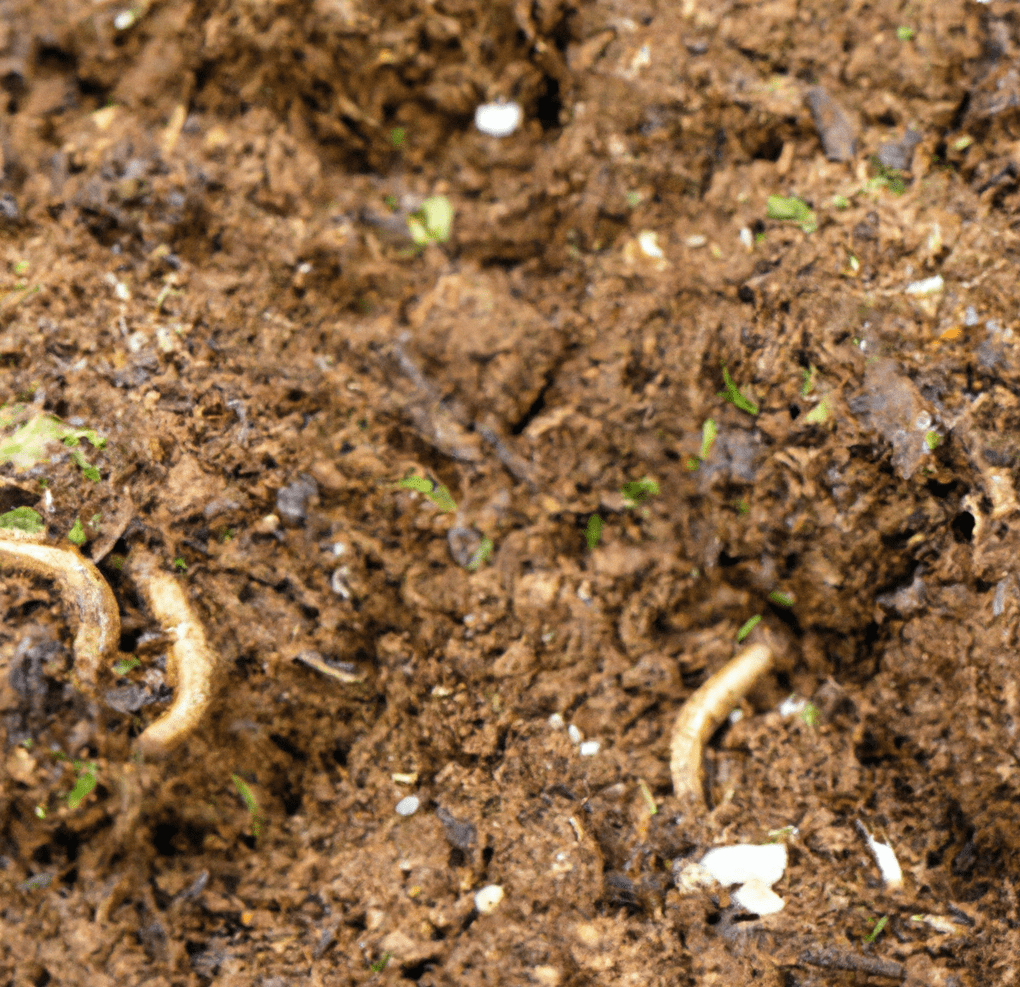
Can Improve Soil Health and Structure
Soil health is one of the most important factors in farming and gardening. Crop output is increased by healthy soil, which offers plants an excellent habitat for growth. Chemical fertilizers can temporarily increase plant growth, but they frequently have unfavorable side effects such as groundwater contamination, environmental degradation, and the eradication of beneficial soil bacteria.
On the other hand, the benefits of using vermicompost as a fertilizer or as a soil additive rather than synthetic fertilizers are plenty. The first benefit of organic amendments is that they give plants a slow-release supply of nutrients, avoiding nutrient leakage and lowering the chance of groundwater contamination. Second, they enhance soil structure, which promotes greater root growth and water absorption, resulting in stronger, healthier plants. Finally, they encourage the development of advantageous soil microbes, which boost soil health and control pests and illnesses that affect plants.
How to Use Vermicompost as a Fertilizer
Now that you know more about the benefits of using vermicompost as a fertilizer, here’s how to use it:
Vermicomposting can be done in a number of ways, although the bin method and the windrow approach are the most popular. The bin method involves keeping worms in a container and frequently adding organic trash to the container. Vermicompost is created when worms digest organic waste. In the windrow technique, the organic waste is stacked in rows and supplemented with worms. Vermicompost is created after the worms have digested the organic waste.
Vegetables, fruits, flowers, and trees can all benefit from the fertilization provided by vermicompost. The type of crop and the size of the planting area will determine how much vermicompost to use. Vermicompost should generally be spread one to two inches thick and blended into the topsoil as a general rule. To encourage root development in seedlings and transplants, you can add a tiny amount of vermicompost to the planting hole. Vermicompost can be used alongside other fertilizers to provide plants with a more complete nutritional profile. You can use up to 50% less chemical fertilizer if you supplement it with vermicompost while using chemical fertilizers.
It’s critical to avoid overfertilizing when using vermicompost in conjunction with other fertilizers, as this might result in nutritional imbalances and soil damage. Vermicompost can also be used to create compost tea, a fantastic liquid fertilizer that can be sprayed on plant leaves and roots.
Bottom Line: The Benefits of Using Vermicompost as a Fertilizer
Vermicompost is a sustainable and environmentally benign alternative to chemical fertilizers, which can have detrimental impacts on the environment and soil quality. Just like the role mycorrhizae play in plant growth and fertilization, vermicompost can enhance crop yields, improve soil quality, and lessen the demand for synthetic fertilizers. The capacity to feed the soil with advantageous microorganisms that increase the soil’s fertility and enhance the general health of plants is one of the benefits of using vermicompost as a fertilizer.
Vermicompost is a beneficial resource for both farmers and gardeners because it has been demonstrated to help plants withstand pests and diseases, minimizes soil erosion, and retain moisture. Vermicompost is currently the subject of an ongoing study to better understand its advantages and investigate potential future advances in its use as fertilizer. Vermicompost is being studied by scientists for its potential application in sustainable and organic agriculture as well as its impact on different types of crops and soils.
The Benefits of Using Vermicompost as a Fertilizer FAQs
What’s vermicompost?
Worm castings, commonly referred to as vermicompost, is a compost full of nutrients created by earthworms that can be used as a natural fertilizer for plants.
What advantages does using vermicompost as fertilizer offer?
Vermicompost improves soil structure, promotes the growth of healthy roots, increases soil fertility, and helps retain moisture, reducing the need for frequent irrigation. It also has helpful microorganisms and enzymes that aid in warding off pests and diseases that are spread through the soil. It’s also a sustainable and eco-friendly substitute for chemical fertilizers that causes less environmental harm and utilizes less synthetic inputs.
What advantages does vermicompost as a fertilizer provide in terms of nutrition?
Micronutrients like calcium, magnesium, and iron are abundant in vermicompost, which also contains a well-balanced combination of macronutrients including nitrogen, phosphorus, and potassium. Due to their steady delivery and accessibility to plants, these nutrients promote healthy growth and development in them.
What advantages does employing vermicompost as a fertilizer provide for the environment?
It’s more sustainable and environmentally friendly to use vermicompost as fertilizer because it has less negative environmental consequences than chemical fertilizers. It can assist growers and gardeners in enhancing the fertility and output of their soil and promote the growth of more robust, nutrient-dense plants. It also decreases the negative effects of utilizing chemical fertilizers on the environment, such as soil erosion and water contamination.
What are some of the trace elements and micronutrients that can be found in vermicompost?
Nitrogen, phosphorus, potassium, calcium, and magnesium are among the micronutrients and trace minerals found in vermicompost that are crucial for plant growth. Additionally, it encourages the growth of beneficial microorganisms that help break down organic materials and release nutrients for plant uptake.


